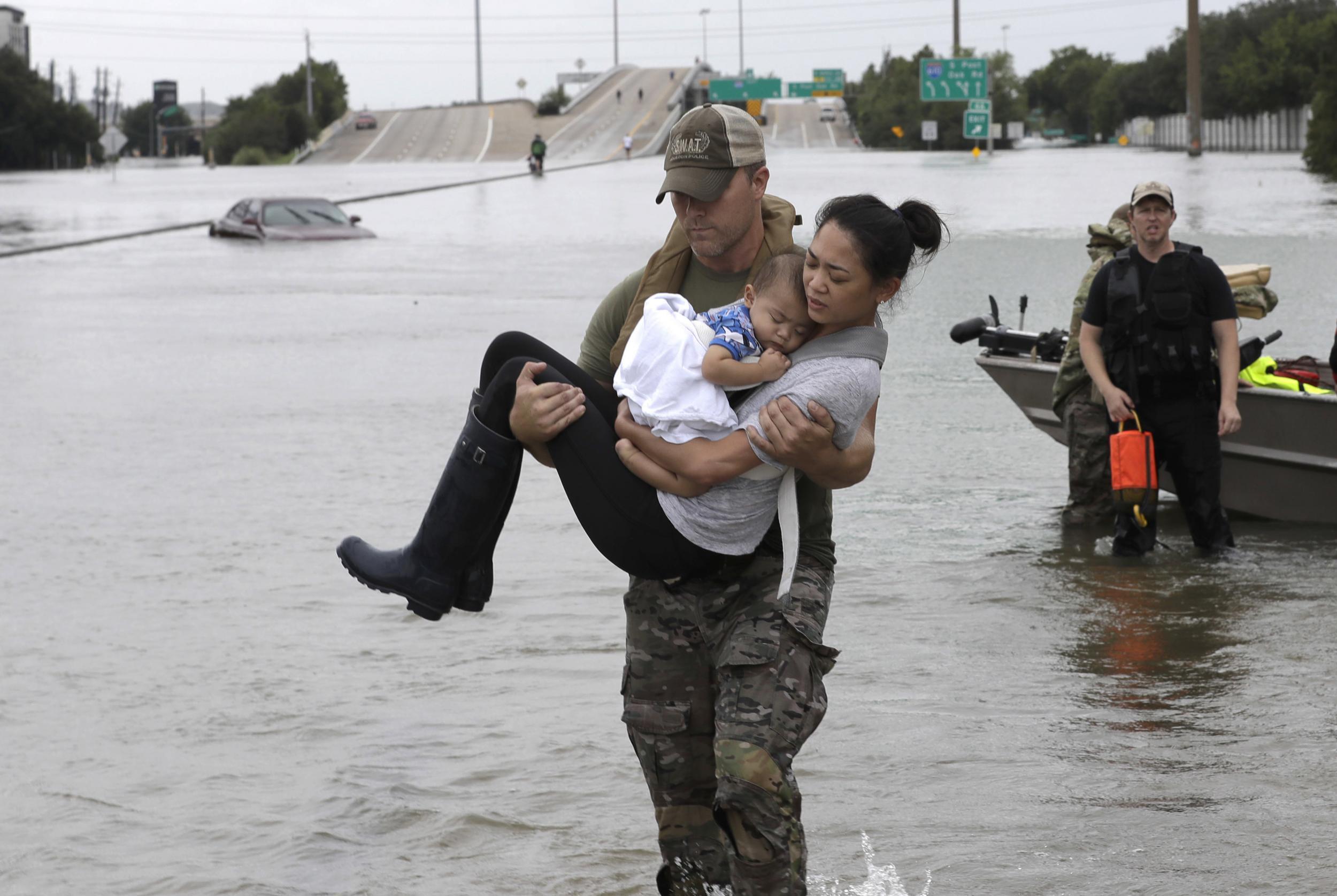Hurricane Harvey: Fraudsters could pretend to be relief charities, warms US Justice Department
'Unfortunately, criminals can exploit disasters, such as Hurricane Harvey, for their own gain'

Your support helps us to tell the story
From reproductive rights to climate change to Big Tech, The Independent is on the ground when the story is developing. Whether it's investigating the financials of Elon Musk's pro-Trump PAC or producing our latest documentary, 'The A Word', which shines a light on the American women fighting for reproductive rights, we know how important it is to parse out the facts from the messaging.
At such a critical moment in US history, we need reporters on the ground. Your donation allows us to keep sending journalists to speak to both sides of the story.
The Independent is trusted by Americans across the entire political spectrum. And unlike many other quality news outlets, we choose not to lock Americans out of our reporting and analysis with paywalls. We believe quality journalism should be available to everyone, paid for by those who can afford it.
Your support makes all the difference.Scammers pretending to be relief charities could target people hoping to donate to the victims of Hurricane Harvey, the US Department of Justice (DoJ) has warned.
Citizens wishing to donate to Texans affected by flooding, should check organisations’ legitimacy before donating, it said.
“Unfortunately, criminals can exploit disasters, such as Hurricane Harvey, for their own gain by sending fraudulent communications through email or social media and by creating phony websites designed to solicit contributions,” it added.
Those looking to donate were advised to maintain standard internet safety behaviours, like never clicking on attachments or links from unknown sources, to ensure their goodwill was not taken advantage of.
A National Centre for Disaster Fraud was created in 2005 following FBI investigations into thousands of fake websites claiming to take donations for victims of Hurricane Katrina.
At the time, the Red Cross identified 15 sites mimicking their own donations website in just the first few days of the disaster.
The US government’s consumer protection agency, the Federal Trade Commission (FTC), also urged people to be vigilant.
It said donors should only to donate to familiar charities, watch out for suspiciously new organisations and verify phone numbers before making donations by text.
“It’s heartbreaking to see people lose their lives, homes, and businesses to the ongoing flooding in Texas,” said the FTC’s consumer education specialist, Colleen Tressler. “But it’s despicable when scammers exploit such tragedies to appeal to your sense of generosity.
“If you’re looking for a way to give, the FTC urges you to be cautious of potential charity scams. Do some research to ensure that your donation will go to a reputable organization that will use the money as promised.”
Givers in the US can check if a fundraiser is registered in their state through the National Association of State Charity Officials.
Subscribe to Independent Premium to bookmark this article
Want to bookmark your favourite articles and stories to read or reference later? Start your Independent Premium subscription today.
Join our commenting forum
Join thought-provoking conversations, follow other Independent readers and see their replies
Comments